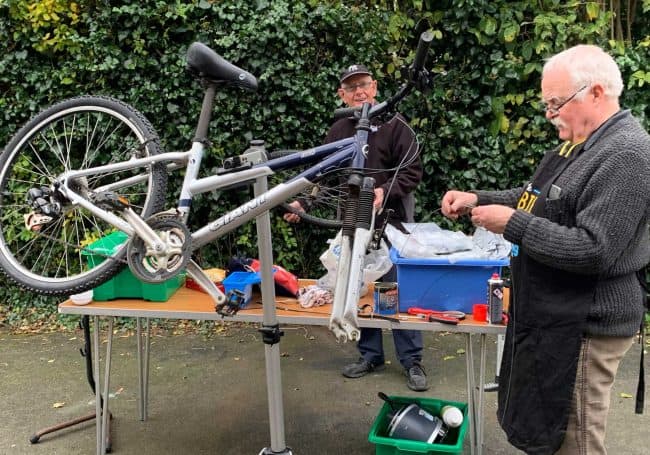There is enough evidence of how things are for anyone to see that the future will not be like the past.
The economy is shrinking, hospitals, schools, roads and houses are collapsing, and the NHS is unlikely to recover. In the private sector, discretionary markets and organisations – retail and hospitality – are in a similar condition. National and local politicians taunt each other about their lack of plans.
All symptoms of transition to other ways are yet to be recognised.
Localisation is now pivotal, bridging cultural divides and fostering meaningful connections. Traditionally, local doings used to be seen by top-down planners as decentralisation.
Neighbourhood Development Plans were an example. The government decided on the big picture it wanted, and local authorities translated this into local planning policies imposed on the parish councils. A kind of top-down plan which purports to be what the neighbourhood wants. Which is not localisation.
The disorganised (in a top-down sense) collapse of industrial ways is where we are heading: heralding a shift towards bottom-up localisation, in which communities and individuals play a central role in determining what is to be done. Irrespective of what they are told they need.
The future of localisation without top-down interference heralds a paradigm shift towards empowerment at the grassroots level. Rather than imposing standardised processes and solutions from above, localism acknowledges local communities’ diverse wants and nuances and empowers them to shape their cultural, linguistic, and economic landscapes.
One of the key drivers of this transformation is technology. Which is already happening, albeit out of sight.
The digital age has democratised access to information and tools, enabling individuals and communities to participate actively in localisation. Crowdsourcing platforms, collaborative online tools, and open-source software are empowering people to contribute to transition, cultural adaptation, and content creation in previously impossible ways.
Moreover, social media and digital communication platforms have facilitated the sharing of localised content, amplifying voices from diverse communities and fostering cross-cultural dialogue. In this bottom-up approach, individuals are not passive recipients of top-down localised content but active participants in its creation and dissemination.
Another catalyst for bottom-up localisation is the growing recognition of the importance of cultural authenticity and diversity. In an era of globalisation and homogenisation, preserving and celebrating local cultures has become increasingly important.
Bottom-up localisation allows for preserving linguistic nuances, cultural references, and indigenous knowledge, enriching the global tapestry of human experience.
Furthermore, bottom-up localisation holds the promise of greater sustainability and resilience. Empowering local communities to develop their solutions and systems reduces dependence on external actors and fosters self-reliance.
In times of crisis, whether environmental, economic, or social, communities equipped with localised knowledge and resources are better positioned to respond effectively and adapt to changing circumstances.
Embracing bottom-up localisation does not come without challenges. It requires a shift in mindset from centralised control to distributed collaboration, which may encounter resistance from entrenched power structures. Moreover, ensuring quality and consistency in localised content without centralised oversight poses challenges.
Despite these obstacles, the potential benefits of bottom-up localisation are immense. Harnessing diverse communities’ collective wisdom and creativity can foster inclusivity, promote cultural understanding, and drive sustainable development. In a world of complexity and interconnectedness, bottom-up localisation offers a pathway towards a more equitable, resilient, and culturally vibrant future.
It is a natural evolution. It’s not a plan. Without admitting it, the present political powers that want to be are in a state of no planning. Which is OK.
The future doesn’t have a plan. It evolves and emerges naturally. It is localisation.
This post first appeared in Orcop.com





